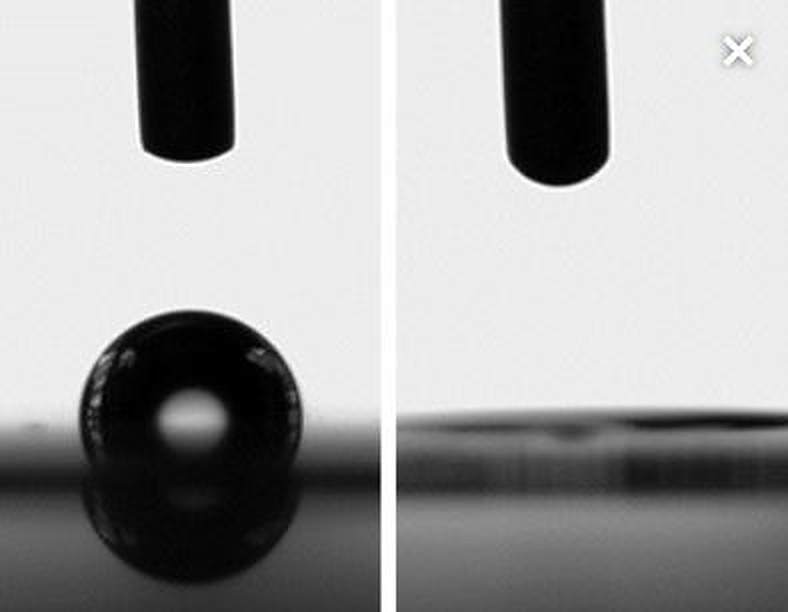From pv magazine Global
Germany’s Fraunhofer Institute for Organic Electronics, Electron Beam and Plasma Technology (FEP) claims to have applied crystalline titanium oxide to ultra-thin glass for the first time in a roll-to-roll process.
“The ultra-thin and lightweight glass can be applied subsequently to facades or directly incorporated into solar modules as a composite material – and even onto curved surfaces,” said Fraunhofer FEP researcher Valentin Heise. “Dirt-repellent, easy-to-clean surfaces ensure transparency and cleanliness for facades and more efficient and consistent energy production for solar, with less maintenance costs.”
The researchers said titanium dioxide is a material that is hydrophobic when not exposed to ultraviolet (UV) radiation and superhydrophilic when radiated.
“In the case of photoinduced hydrophilicity, the surface changes from hydrophobic to superhydrophilic after approximately 30 minutes of irradiation with sun-like UV light,” they stated.
They said the dirt on the solar panels can be removed by the coating at night, when the hydrophobicity of the surface washes it away with the aid of beads of moisture. The cyclical alternation of hydrophobic and superhydrophilic effects prevents the dirt from adhering to the panel surface during the day.
The scientists fabricated the first coating prototype with a long roll of thin glass with a thickness of 100 micrometers. They used a titanium oxide film with a thickness of 30 nanometers to 150 nanometers and a pilot plant for roll-to-roll coating provided by German equipment supplier Von Ardenne.
The research team said it is currently working on improving the technology by adjusting the properties of the titanium dioxide and thin glass in a cost-efficient way.
“In the future, work will also be done by Fraunhofer FEP on layer systems that can be activated not only with UV light but also with visible light,” they said. “The production and embedding of nanoparticles or doping with nitrogen, for example, are also being considered.”
This content is protected by copyright and may not be reused. If you want to cooperate with us and would like to reuse some of our content, please contact: editors@pv-magazine.com.









1 comment
By submitting this form you agree to pv magazine using your data for the purposes of publishing your comment.
Your personal data will only be disclosed or otherwise transmitted to third parties for the purposes of spam filtering or if this is necessary for technical maintenance of the website. Any other transfer to third parties will not take place unless this is justified on the basis of applicable data protection regulations or if pv magazine is legally obliged to do so.
You may revoke this consent at any time with effect for the future, in which case your personal data will be deleted immediately. Otherwise, your data will be deleted if pv magazine has processed your request or the purpose of data storage is fulfilled.
Further information on data privacy can be found in our Data Protection Policy.